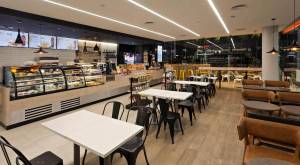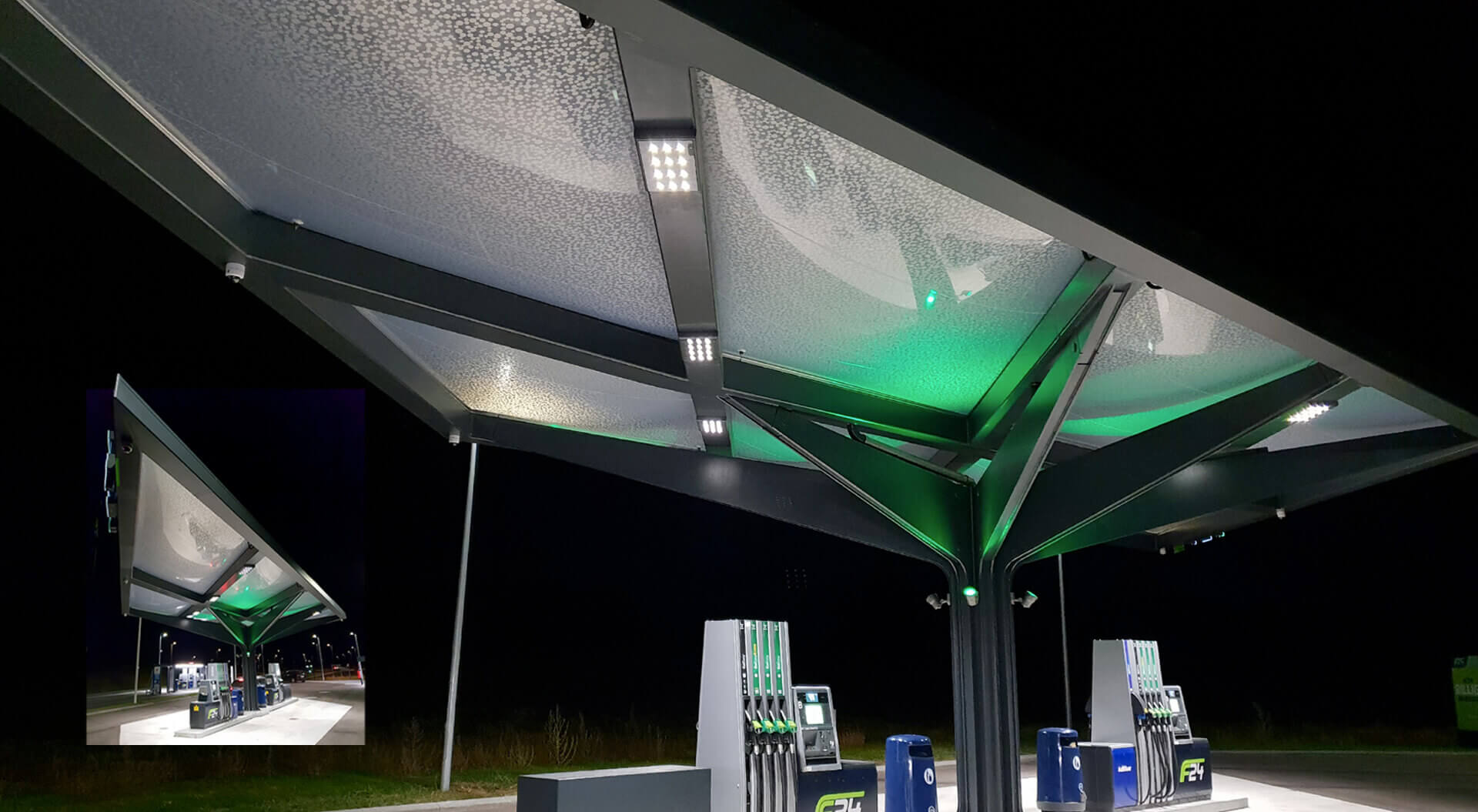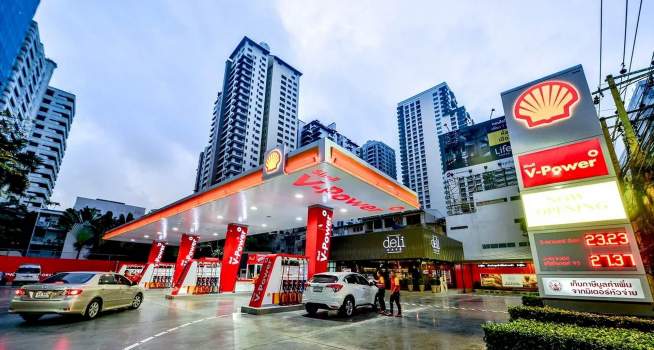News and Views
A petrol forecourt benchmark proposal for Gulf Oil International.

Gulf Oil International
Creativity and innovation in forecourt retail are driving Gulf's growth, with over 1,400 Gulf-branded stations spanning 23 countries. These stations, operated by a mix of licensee-owned dealerships and franchisees, have so far developed their stores and forecourts based on individual 'forecourt guidelines.' To bring consistency to these designs, we proposed a sector benchmarking initiative. This benchmark document would serve as a catalyst for the unification of forecourt design guidelines across continents.
In predicting future forecourt trends, we started by thoroughly researching the market, studying both historical and contemporary forecourt and convenience store designs. This foundational step allowed us to approach the design phase with informed insights.
Our creative team focused on future-oriented designs while paying homage to Gulf’s heritage. We benchmarked international forecourt brands that successfully create differentiation, foster brand loyalty, and boost profit margins. This research revealed how retailers are rethinking forecourt formats to meet the evolving energy needs of consumers, redesigning canopies, brand identities, and c-stores with modern customers in mind. By offering a range of localized products, forecourt retailers aim to attract customers and encourage impulse purchases, enhancing the overall retail experience.
As part of this shift, many global forecourt retailers are not only standardizing their branding but also redesigning their in-store layouts to stand out from competitors and draw more customers. Increasing retail space to accommodate freshly prepared food-to-go or eat-in options, with seating for those who prefer to dine in-store, is a growing trend.
Petrol forecourt retailers are also introducing new menu concepts like live food preparation to keep pace with consumer preferences. They offer healthy and localized products, such as fresh fruits, vegetables, dairy, deli items, and low-calorie snacks and beverages to cater to a broad range of customer demographics. Retailers are adapting their product mix to meet changing customer demands and are increasingly launching their own private labels for fresh food and coffee, ensuring they stay relevant in an evolving market.
Our creative team focused on future-oriented designs while paying homage to Gulf’s heritage.
We benchmarked international forecourt brands that successfully create differentiation, foster brand loyalty, and boost profit margins.This research revealed how retailers are rethinking forecourt formats to meet the evolving energy needs of consumers, redesigning canopies, brand identities, and c-stores with modern customers in mind.By offering a range of localized products, forecourt retailers aim to attract customers and encourage impulse purchases, enhancing the overall retail experience.

































